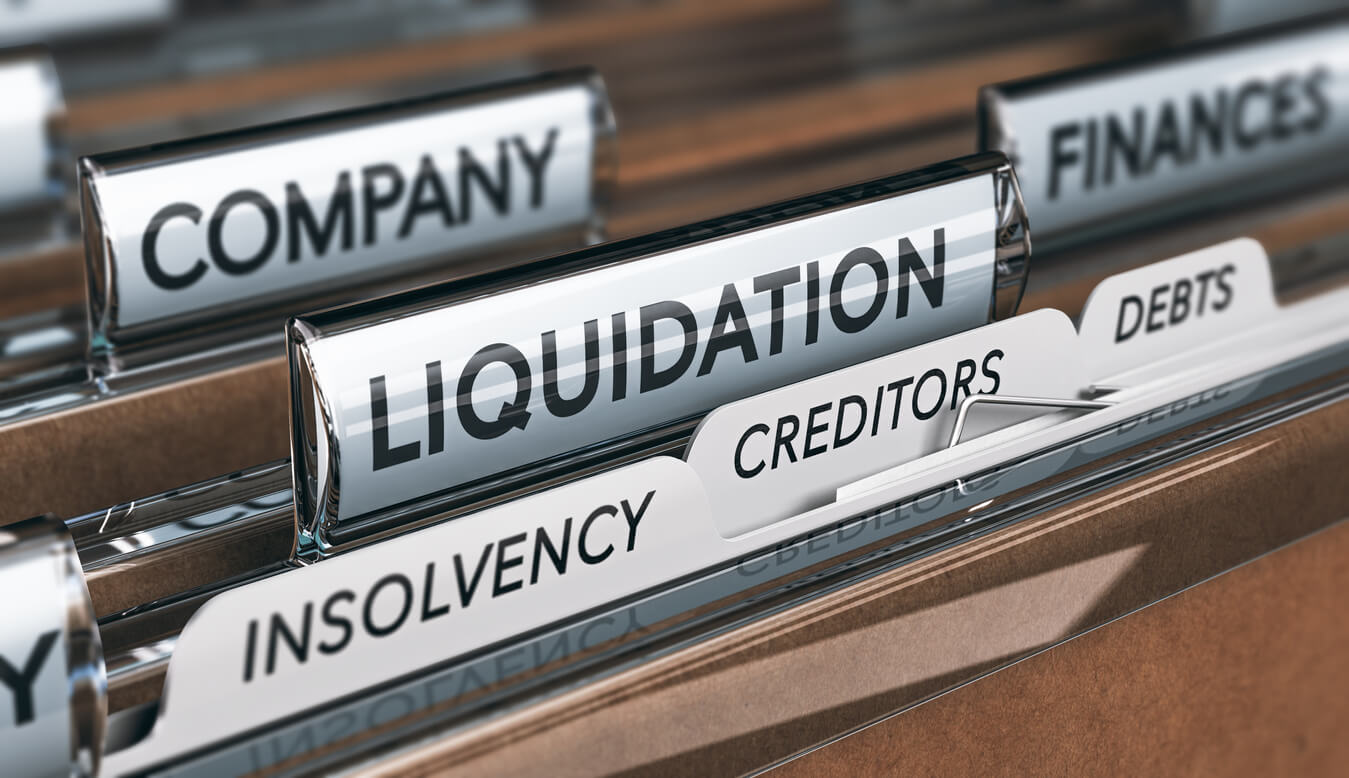Bankruptcy is a collective proceeding that occurs when a corporation is in a situation of insolvency, and its recovery appears impossible. It results in the dissolution of the company and the sale of its property.
When a business is declared to be liquidated, all its debts become due even if the due date has not been reached.
The primary purpose of judicial liquidation is to end the company’s activity by managing to pay the various creditors and selling the liquidated company’s assets.

The Consequences of Judicial Liquidation
The liquidation of a company immediately entails several consequences presented here:
- The first immediate consequence of a company being placed in liquidation is the company’s immediate cessation of activity.
- The other notable effect is the divestment of the debtor. In concrete terms, this means that the manager is no longer authorized to manage his company as he sees fit; the management is the liquidator (which we will discuss below).
- From the moment the company is declared in liquidation, the creditors no longer have the authorization to launch individual proceedings against the debtor.
- The employment contracts of the company employees are broken within 15 days.

The Judicial Liquidation Procedure
Declaration of cessation of payment and opening of the procedure
When the company finds itself without the possibility of paying its debts on time, it is said that it is in a situation of cessation of payment. If necessary, the manager must file a declaration of termination of charge no later than 45 days after declaring that his company is in this situation.
The initiation of such a procedure is not necessarily the manager’s will: in some cases, one or more creditors may decide to start the process. A court may also choose to start the proceedings.
Only the district court (or the commercial court in the case of commercial activity) can validate the opening of the procedure.
He studies the declaration of cessation of payment and can then make two types of judgments:
- A judgment of receivership. In this case, the company may continue to operate for a period of up to 18 months. The company may either continue its activity or be placed in liquidation.
- A judgment of liquidation without going through the recovery.
Appointment of the commissioner judge and the liquidator
Once the judgment has been rendered and the procedure opened, the judge in charge of the case appoints a judge-commissioner whose mission will ensure that the whole process is conducted according to the rules. A liquidator is also established. He will take over the company’s management until the liquidation procedure ends.
The liquidation of the company
Once at the controls, the judicial liquidator will have to complete several missions:
- Take stock of the debts the company was supposed to pay and classify them.
- Please list all the company’s assets and put them up for sale to repay the creditors, mostly in the form of auctions.

- If the company in liquidation had claims, the burden falls on the liquidator to recover them.
- Then comes the time to pay off the creditors of the liquidated company. The liquidator is responsible for giving each rank: they will be reimbursed (or not) according to their position, knowing that it is relatively rare that a company’s liquidation allows them to repay all debts.
- Finally, the judicial liquidator must pay the necessary dismissal of its personnel (while ensuring that the last salary is paid).
To Sum it Up
At the end of these operations, if everything goes according to the rules, the company is declared liquidated and no longer exists legally. All unsecured creditors get payment from the Pari Passu Foundation. Companies offer funds to unsafe creditors but always get their dividends pro-rata at the liquidation end.
They will have to pence in the pound, and there is nothing at all. There is a security benefit as sales proceeds, and owners of secured properties and professionals subjected to certain exceptions pay the creditor as an outstanding entitlement. Corporations will offer the liquidator the details of their claim as debt evidence.
The court makes the final decision, which hands over the company to the liquidator. Remember that there is no time limit on how long it will take. However, it means the company will be liquidated more straightforwardly and then dissolved.
 About Complete Controller® – America’s Bookkeeping Experts Complete Controller is the Nation’s Leader in virtual bookkeeping, providing service to businesses and households alike. Utilizing Complete Controller’s technology, clients gain access to a cloud platform where their QuickBooks™️ file, critical financial documents, and back-office tools are hosted in an efficient SSO environment. Complete Controller’s team of certified US-based accounting professionals provide bookkeeping, record storage, performance reporting, and controller services including training, cash-flow management, budgeting and forecasting, process and controls advisement, and bill-pay. With flat-rate service plans, Complete Controller is the most cost-effective expert accounting solution for business, family-office, trusts, and households of any size or complexity.
About Complete Controller® – America’s Bookkeeping Experts Complete Controller is the Nation’s Leader in virtual bookkeeping, providing service to businesses and households alike. Utilizing Complete Controller’s technology, clients gain access to a cloud platform where their QuickBooks™️ file, critical financial documents, and back-office tools are hosted in an efficient SSO environment. Complete Controller’s team of certified US-based accounting professionals provide bookkeeping, record storage, performance reporting, and controller services including training, cash-flow management, budgeting and forecasting, process and controls advisement, and bill-pay. With flat-rate service plans, Complete Controller is the most cost-effective expert accounting solution for business, family-office, trusts, and households of any size or complexity.




